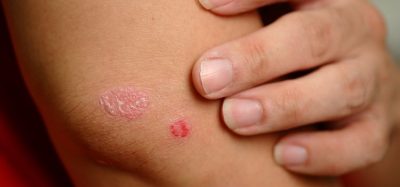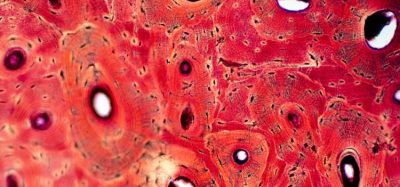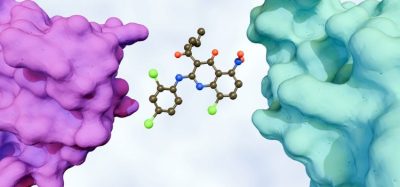CHMP meeting highlights – July 2024
In its July meeting, the EMA’s human medicines committee recommended 14 medicines and held a negative opinion for authorising lecanemab to treat Alzheimer’s disease.
The Committee for Medicinal Products for Human Use (CHMP) has recommended against a marketing authorisation for Leqembi (lecanemab), as a treatment for Alzheimer’s disease, during its July meeting last week.
They concluded that considering the “observed effect of Leqembi on delaying cognitive decline does not counterbalance the risk of serious side events associated with the medicine, in particular the frequent occurrence of amyloid-related imaging abnormalities (ARIA), involving swelling and potential bleedings in the brain of patients who received Leqembi”.
The treatment is already authorised in the US, Japan, China, South Korea, Hong Kong, and Israel, based on data from the worldwide Phase III Clarity AD study, of which results were published in November 2022.
Positive opinion’s adopted for 14 medicines
On the other hand, recommendations for marketing authorisations for 14 medicines were granted by the committee.
A positive opinion was granted for Anzupgo (delgocitinib) to treat moderate to severe chronic hand eczema in adults. The group considered that the medicine should be given to individuals where “topical corticosteroids are inadequate or inappropriate”.
The committee recommended a conditional marketing authorisation for Iqirvo (elafibranor), for primary biliary cholangitis, an autoimmune disease that can cause liver damage, the EMA stated.
A positive opinion for Kayfanda (odevixibat) was granted under exceptional circumstances for cholestatic pruritus in individuals with Alagille syndrome.
In its July meeting, the committee also gave a positive opinion for Loqtorzi (toripalimab). The treatment was recommended for nasopharyngeal carcinoma and oesophageal squamous cell carcinoma.
EMA’s human medicines committee held a positive opinion for Vevizye (ciclosporin), to treat adults with moderate to severe dry eye disease.
The CHMP also recommended Vyloy (zolbetuximab) to treat gastric or gastro-oesophageal junction adenocarcinoma.
CHMP recommendation for a single tablet combination for PAH
Furthermore, a positive opinion was adopted for Yuvanci (macitentan / tadalafil), to treat pulmonary arterial hypertension (PAH).
“Bringing a single tablet combination… could represent an important new option for adults living with [pulmonary arterial hypertension] who face complex treatment regimens”
“Bringing a single tablet combination follows the ESC/ERS guidelines, which recommend initial double and triple combination therapy, and could represent an important new option for adults living with PAH who face complex treatment regimens,” Dr Tamara Werner-Kiechle, EMEA Therapeutic Area Lead Neuroscience and Cardiopulmonary, Johnson & Johnson Innovative Medicine commented.
The CHMP’s opinion is based on data from Phase III clinical data. The A DUE study showed that M/T STCT treatment facilitated a 29 percent reduction in pulmonary vascular resistance (PVR) compared to macitentan, and a 28 percent reduction in PVR as compared to tadalafil.
Subject to regulatory approval by the European Commission, Yuvanci® would be the only single tablet combination therapy in Europe for pulmonary arterial hypertension, Johnson & Johnson Innovative Medicine shared.
The committee also adopted positive opinions for six biosimilar medicines including:
- Eksunbi (ustekinumab) and Fymskina (ustekinumab). These medicines were recommended by the CHMP to treat plaque psoriasis, paediatric plaque psoriasis, psoriatic arthritis, ulcerative colitis and Crohn’s disease.
- Tuznue (trastuzumab) for breast and gastric cancer.
Furthermore, in its July meeting, the EMA’s human medicines committee recommended the generic medicine Axitinib Accord (axitinib), to treat adults with advanced renal cell carcinoma.
Extending therapeutic indications
Moreover, the committee recommended extending the indications for 11 medicines that have already been approved in the EU: Arexvy, Braftovi, Edurant, Keytruda, Mektovi, Opsumit, Padcev, Rybrevant, Slenyto, Spevigo and Tecentriq.
Related topics
Anti-Cancer Therapeutics, Biologics, Biopharmaceuticals, Clinical Development, Clinical Trials, Drug Development, Drug Markets, Drug Safety, Industry Insight, Regulation & Legislation, Research & Development (R&D), Therapeutics
Related drugs
Anzupgo (delgocitinib), Arexvy, Axitinib Accord (axitinib), Braftovi, Edurant, Eksunbi (ustekinumab), Fymskina (ustekinumab), Iqirvo (elafibranor), Kayfanda (odevixibat), KEYTRUDA®, Leqembi (lecanemab-irmb), Loqtorzi (toripalimab), Mektovi, Opsumit, PADCEV, Rybrevant, Slenyto, Spevigo, Tecentriq, Tuznue (trastuzumab), Vevizye (ciclosporin), Vyloy (zolbetuximab), Yuvanci (macitentan / tadalafil)
Related diseases & conditions
Alagille syndrome, Alzheimer’s disease, Breast cancer, Cancer, cholestatic pruritus, Crohn's disease (CD), dry eye disease, Eczema, gastric cancer (GC), gastro-oesophageal junction adenocarcinoma, nasopharyngeal carcinoma, oesophageal squamous cell carcinoma, plaque psoriasis (PsO), primary biliary cholangitis (PBC), psoriatic arthritis (PsA), pulmonary arterial hypertension (PAH), Renal cell carcinoma, Ulcerative colitis (UC)










